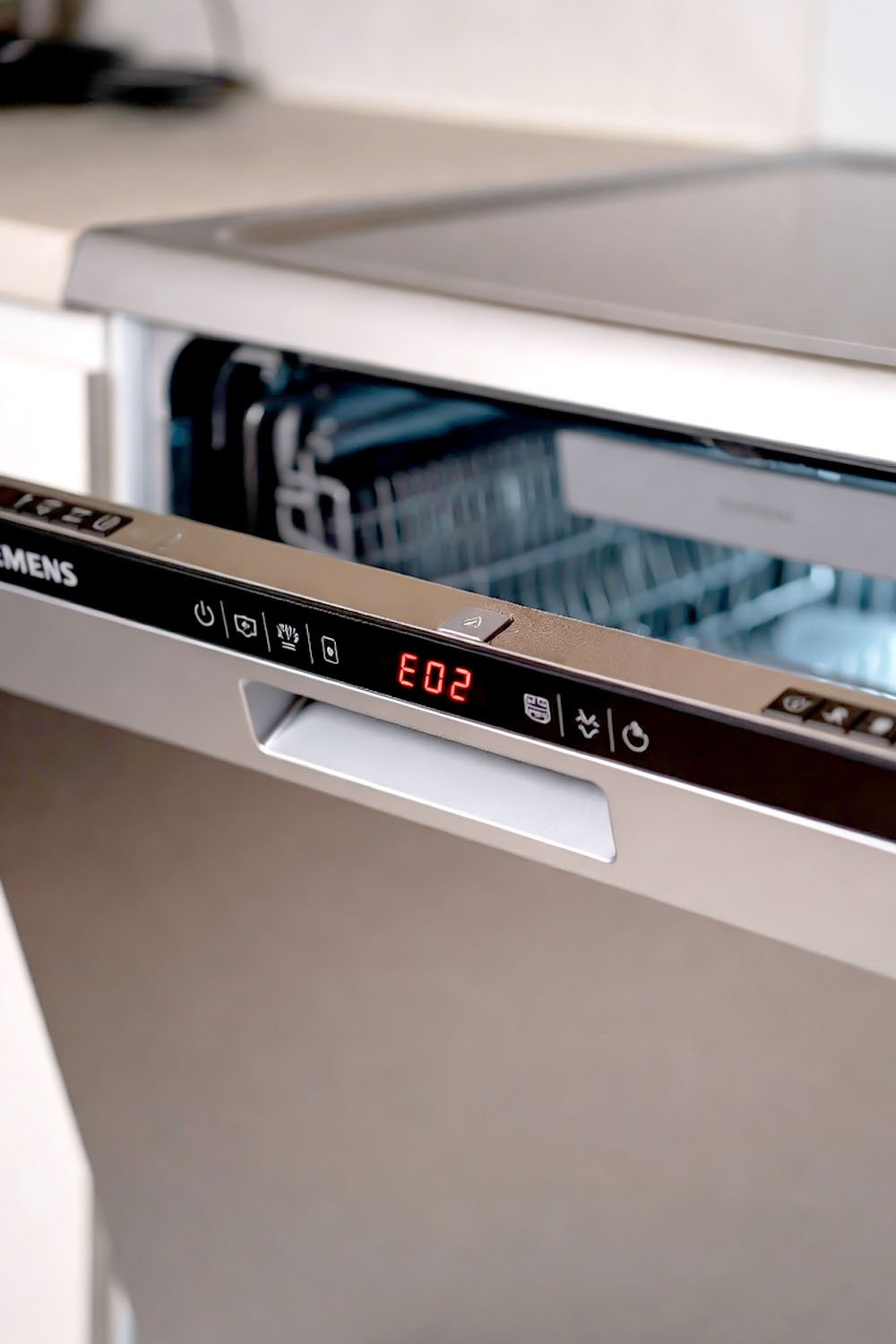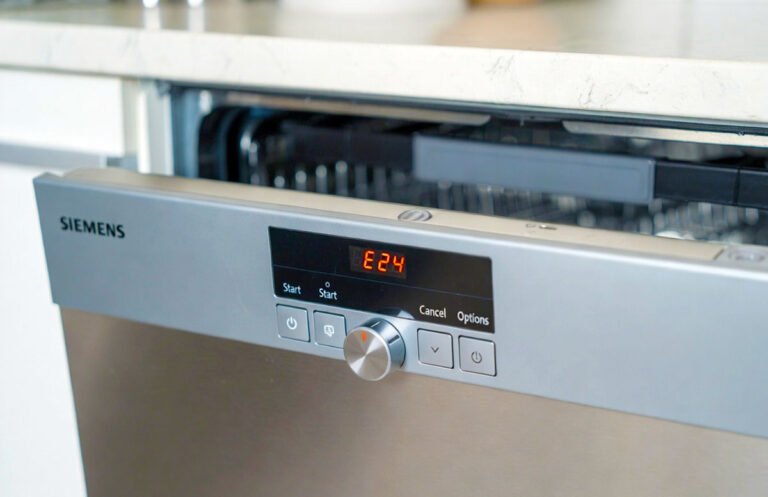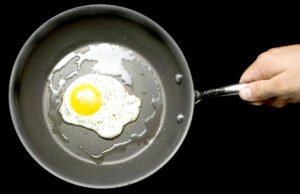As an Amazon Associate, I earn from qualifying purchases at no extra cost to you.
How to Clean an LG Dishwasher the Easy Way (Quick Steps)
It’s normal for dishwashers to get dirty over time. Many people forget that even high-tech LG dishwashers need regular cleaning. You can easily remove grime, soap buildup, and odor with the right steps.
Always remove leftover food and debris from the filter first. Wipe the door and edges with a soft cloth. Use a dishwasher cleaner or vinegar for deep cleaning. Regular maintenance improves performance, reduces odors, and prevents expensive repairs.
Best Ways to Clean Your LG Dishwasher Thoroughly
Inspect and Clean the Filter
First, locate the dishwasher filter at the bottom of the appliance. Carefully remove it by turning and lifting it out. Check for leftover food, grease, or grime stuck in the mesh. Rinse it under warm running water using a soft brush to remove all particles.
If food debris remains, soak the filter in warm, soapy water for 10–15 minutes. After soaking, gently scrub it again, then rinse completely. Never use harsh tools like knives, as they can damage the filter. Place the filter back properly to ensure water flows correctly during washes.
Cleaning the filter regularly prevents clogs, bad odors, and poor cleaning performance. It also protects the dishwasher’s pump and keeps your appliance running efficiently. You should check it at least once a week if you run dishes daily.
- Locate the filter at the bottom.
- Remove and rinse under warm water.
- Soak in soapy water if needed.
- Scrub gently and replace securely.
Wipe Down the Door and Seals
Next, open the dishwasher and examine the door edges and rubber seals. These areas collect dirt, soap scum, and mold over time. Use a damp cloth with mild soap to clean thoroughly. Wipe in small sections to avoid missing hidden dirt.
Pay attention to the gasket, as food particles can hide there. Clean slowly and carefully to prevent damage. After wiping, use a dry cloth to remove moisture, which can cause mold growth. This simple step helps your dishwasher stay hygienic and prevents bad smells from spreading.
Keeping the door and seals clean ensures a tight seal during operation. It also prevents leaks and keeps your appliance looking neat. Make this part of your weekly routine for the best results.
- Check edges and seals for dirt.
- Use a damp cloth with mild soap.
- Wipe small sections carefully.
- Dry completely to prevent mold.
Clean the Spray Arms
Spray arms distribute water for cleaning dishes. Over time, they can get clogged with food or mineral deposits. Remove the arms by unlocking or unscrewing them carefully. Inspect all holes to make sure they are clear.
If you notice blockages, use a toothpick or small brush to remove debris. Rinse under warm water, ensuring all holes are free. For tough mineral buildup, soak the spray arms in vinegar for 20–30 minutes. Reattach them securely before running the dishwasher again.
Regular cleaning of spray arms improves water flow and ensures dishes come out spotless. It also extends the life of your dishwasher by reducing strain on the pump. Clean them monthly for optimal performance.
- Remove spray arms carefully.
- Check all holes for clogs.
- Use vinegar for mineral buildup.
- Reattach securely before use.
Run a Cleaning Cycle with Vinegar
Once the parts are clean, it’s time for a full internal cleaning. Place a cup of white vinegar in a dishwasher-safe container on the top rack. Run a hot water cycle without any dishes. The vinegar helps remove grease, odors, and mild stains inside the machine.
This method also cleans the internal pipes and removes light mineral buildup. Avoid using harsh chemicals, as vinegar is safe and effective for regular maintenance. After the cycle, leave the door open for a few hours to allow the interior to dry completely.
Using vinegar is an eco-friendly and inexpensive way to maintain your dishwasher. Repeat this process monthly or when you notice odors or buildup. Regular cleaning keeps your LG dishwasher performing like new.
- Place a cup of vinegar on the top rack.
- Run a hot water cycle without dishes.
- Allow the dishwasher to dry with the door open.
- Repeat monthly for maintenance.
Use a Dishwasher Cleaner for Deep Cleaning
For stubborn buildup, a commercial dishwasher cleaner works best. These cleaners are designed to remove hard water deposits, grease, and soap scum. Follow the manufacturer’s instructions carefully. Place the cleaner in the detergent compartment or as directed.
Run a full cleaning cycle without dishes. This process reaches areas that vinegar alone might miss. After the cycle, check for any remaining residue and wipe if necessary. Regular deep cleaning keeps your dishwasher efficient and odor-free.
Using a commercial cleaner occasionally ensures thorough sanitation and removes hidden deposits. This step is especially useful if your dishwasher is used heavily or in hard water areas.
- Use a cleaner as instructed.
- Run a full cycle without dishes.
- Wipe remaining residue.
- Repeat every 1–3 months depending on use.
Maintain the Exterior and Controls
Finally, don’t forget the outside of your dishwasher. Wipe the door, handle, and control panel with a damp cloth and mild soap. Avoid abrasive cleaners or rough sponges that can scratch the surface. Dry immediately to prevent streaks and water spots.
Check for buttons or displays that may have trapped dirt. Clean gently using a soft cloth or cotton swab. Maintaining the exterior not only keeps it looking new but also ensures controls work properly without interference from grime.
Regular exterior cleaning complements internal maintenance and prolongs the appliance’s life. Make it a simple weekly routine to keep your LG dishwasher clean and attractive.
- Wipe door, handle, and panel with a damp cloth.
- Avoid abrasive cleaners.
- Dry immediately to prevent streaks.
- Check and clean buttons if needed.
| Task | Method | Tips |
|---|---|---|
| Filter | Remove, rinse, soak if needed | Clean weekly |
| Door & Seals | Wipe with damp cloth | Dry to prevent mold |
| Spray Arms | Remove, clear holes, soak in vinegar | Clean monthly |
| Cleaning Cycle | Vinegar on top rack, hot water | Eco-friendly, repeat monthly |
| Deep Cleaning | Use commercial cleaner, follow instructions | Every 1–3 months |
| Exterior | Wipe, dry, check buttons | Weekly maintenance |
How to Avoid Common Dishwasher Problems
Preventing Bad Odors
Dishwashers can develop bad odors if food and grease are not removed regularly. Always scrape leftover food from dishes before loading. Wipe the filter and door seals weekly. Use vinegar or commercial cleaners occasionally to neutralize smells.
Avoid overloading the dishwasher, as this can trap food particles. Running a hot water cycle helps break down grease and keeps pipes clean. A clean dishwasher prevents odors from transferring to dishes.
Check for trapped debris under racks and spray arms. Regular inspection and maintenance prevent the growth of bacteria and mold. Smell-free appliances make washing dishes more pleasant.
- Scrape food from dishes.
- Clean filter and seals weekly.
- Use vinegar or cleaners.
- Run hot water cycles to prevent odors.
Dealing with Hard Water Stains
Hard water can leave white spots or streaks on dishes and the interior. Use a water softener or add vinegar during cleaning cycles. Run a full hot cycle to remove mineral buildup.
Regular use of dishwasher-safe rinse aids helps prevent streaks. Wipe dry dishes immediately to reduce spots. Deep cleaning spray arms and internal parts removes hidden hard water deposits.
Preventing stains keeps your dishwasher and dishes looking spotless. Consistent maintenance reduces the need for harsh chemicals.
- Use vinegar or water softeners.
- Run hot cycles.
- Use rinse aids.
- Wipe dry dishes immediately.
Avoiding Clogs and Blockages
Clogs can reduce water flow and damage the pump. Always clean the filter and spray arms. Avoid putting large food particles or non-dishwasher-safe items inside.
Run a hot water cycle regularly to flush out grease and debris. Inspect the drain and pipes monthly. Preventing clogs ensures efficient cleaning and prolongs the life of your LG dishwasher.
- Clean filter and spray arms.
- Avoid large debris.
- Run hot water cycles.
- Inspect drain and pipes monthly.
Energy and Water Efficiency Tips
A clean dishwasher uses less water and electricity. Remove debris from the filter and spray arms to allow proper water circulation. Avoid overloading dishes to ensure even cleaning.
Use eco or half-load settings when washing fewer dishes. Running regular cleaning cycles improves efficiency. Maintaining your dishwasher saves money on utility bills and reduces wear.
- Keep filter and spray arms clean.
- Avoid overloading.
- Use eco settings.
- Run regular cleaning cycles.
Frequently Asked Questions (FAQs)
Is it necessary to clean my LG dishwasher every week?
Yes, regular cleaning prevents buildup of food, grease, and soap scum. Weekly maintenance keeps filters, spray arms, and door seals free from debris. This ensures optimal cleaning performance, prevents odors, and reduces the risk of clogs. Weekly upkeep also extends your dishwasher’s life and ensures dishes come out sparkling clean. It takes only a few minutes but makes a big difference over time. Even if you don’t use your dishwasher daily, weekly inspection and light cleaning are highly recommended.
Can I use vinegar instead of a commercial dishwasher cleaner?
Yes, vinegar is safe and effective for regular maintenance. It helps remove grease, odors, and mild mineral deposits inside the dishwasher. Place a cup of white vinegar on the top rack and run a hot cycle without dishes. This method reaches internal areas that are otherwise hard to clean. Vinegar is eco-friendly, inexpensive, and safe for LG dishwashers. However, for heavy buildup or hard water deposits, a commercial cleaner may be more effective for deep cleaning.
Do I need to remove the spray arms to clean them?
Yes, removing the spray arms ensures thorough cleaning. Clogged holes reduce water flow and cleaning efficiency. After removal, inspect holes for debris and use a toothpick or small brush to clear blockages. Soaking the arms in vinegar can help dissolve mineral deposits. Once cleaned, reattach the arms securely to ensure proper water distribution. Regular spray arm cleaning improves dishwasher performance and helps dishes come out cleaner every time.
Is it safe to use harsh chemicals in my LG dishwasher?
No, harsh chemicals can damage internal parts and seals. Always use mild soap, vinegar, or manufacturer-recommended cleaners. Harsh substances may corrode metal, rubber, or plastic components. They can also leave harmful residues on dishes. Using safe cleaning products ensures your dishwasher remains functional and hygienic. Stick to gentle, eco-friendly options to maintain efficiency and protect your appliance over time.
Can I clean the dishwasher while it is running?
No, cleaning should always be done when the dishwasher is off and unplugged. Cleaning during operation is dangerous and can damage internal parts. Always remove filters, spray arms, and any loose debris before running cleaning cycles. Ensure hands and cleaning tools are dry to prevent electrical hazards. Proper cleaning procedures protect both you and your LG dishwasher.
Do I need to clean the dishwasher door regularly?
Yes, the door and seals collect grime and mold over time. Wipe them weekly with a damp cloth and mild soap. Dry completely to prevent moisture buildup, which can lead to odors or mold growth. A clean door also ensures a proper seal and prevents leaks. Regular door cleaning complements internal maintenance for the best results.
Is it important to clean the filter after every wash?
While it’s not necessary after every wash, weekly cleaning is ideal for frequent users. Removing debris prevents clogs, reduces odors, and ensures water flows properly during cycles. For heavy use, check the filter more often. Keeping the filter clean protects the pump and maintains dishwasher efficiency, ensuring dishes are thoroughly cleaned.
Can using a dishwasher cleaner improve performance?
Yes, commercial cleaners remove tough grease, soap scum, and mineral buildup. This improves water flow, prevents odors, and ensures dishes are cleaned effectively. Deep cleaning also protects internal parts from long-term damage. Using a cleaner every 1–3 months maintains optimal performance, especially in hard water areas or with frequent use. It’s an easy way to extend the life of your LG dishwasher.
Final Thoughts
Cleaning your LG dishwasher isn’t just about appearance. It improves hygiene, performance, and efficiency. Simple habits like wiping the door, cleaning the filter, and running vinegar cycles make a huge difference. Regular maintenance prevents odors, clogs, and costly repairs. Taking time to clean ensures your dishwasher works perfectly every day and keeps your dishes sparkling. Consistency and small efforts are the real secrets to a long-lasting, high-performing appliance.








